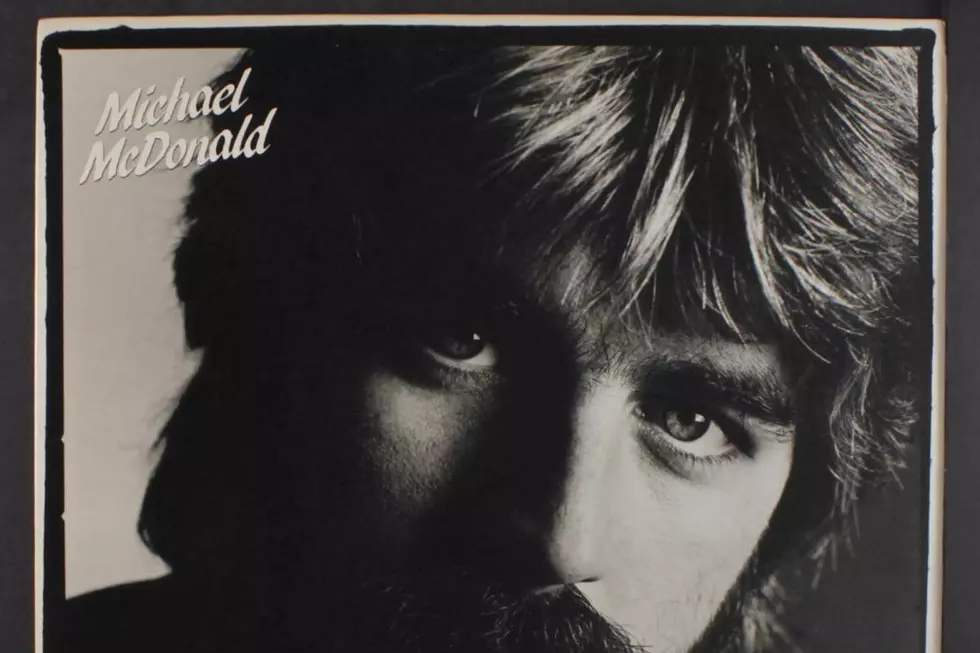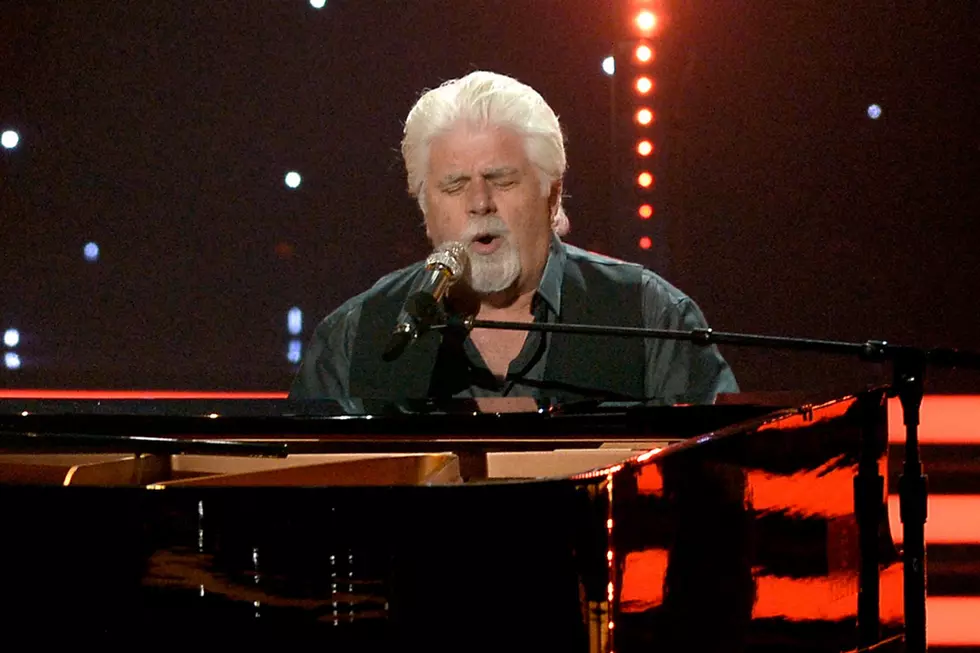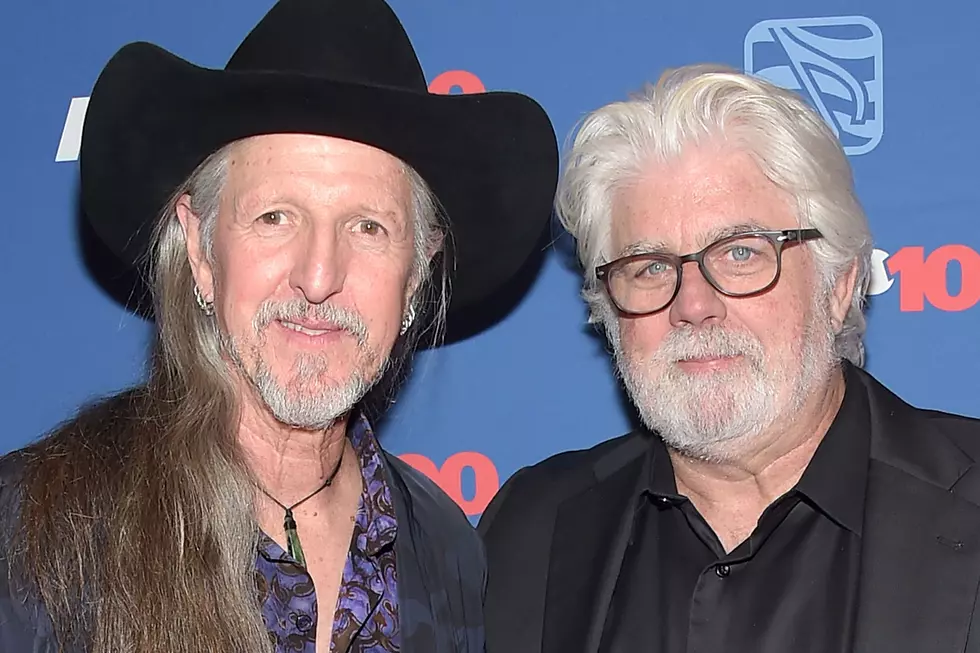
40 Years Ago: Michael McDonald Steps Out With ‘If That’s What It Takes’
A Michael McDonald solo album seemed kind of inevitable by the summer of 1982.
Born in Missouri, McDonald moved to Los Angeles in 1970 with his band Blue, worked with Steely Dan from 1975-76, and then joined the Doobie Brothers in 1975, quickly giving the band two big hits — "Takin' It to the Streets" and "It Keeps You Runnin'."
He'd become the band's dominant creative force by the time they issued the multiple Grammy Award-winner Minute by Minute in 1978. McDonald would also collaborate on recordings by good pal Kenny Loggins, Christopher Cross (notably "Ride Like the Wind"), Bonnie Raitt and Toto, among others.
Yet he remained steadfastly modest. "I came up singing in Top 40 bands, so this was just a dream come true," McDonald told this writer some years ago. "I felt like I was a kid they pushed into a game where he didn't really belong."
The "endearing thing about Mike was his almost complete inability to recognize his own talents," long-time Doobie Brothers producer Ted Templeman wrote in his memoir, A Platinum Producer's Life in Music. "It was charming to see such humility in a musician, and he'd preface each song by telling me, 'Oh, this one's nothing special' ... when in fact they were great."
Listen to Michael McDonald Perform 'I Gotta Try'
Templeman remained on board for If That's What It Takes, as McDonald finally found his own spotlight in August 1982. The idea had actually been percolating since the release of One Step Closer, the Doobie Brothers' platinum 1980 follow up to Minute by Minute. By then, McDonald and Templeman had become close, and Templeman – who dubbed them the "Trouble Twins" – saw bigger things for McDonald.
"It was daunting," McDonald acknowledged later. "I was very comfortable being a band guy. I was very comfortable doing sessions and collaborating. Stepping out on my own felt ... strange."
He was certainly in good hands on If That's What It Takes. Templeman was joined behind the board by Lenny Waronker, a fellow Warner Bros. Records executive whose resume included key albums for James Taylor, Randy Newman, Gordon Lightfoot and Arlo Guthrie, and who'd also produced the Doobie Brothers' self-titled 1972 debut.
The sessions likewise included a who's-who of Los Angeles' finest, including Toto's Steve Lukather and Jeff and Mike Porcaro, latter-day Doobie Brothers band members Willie Weeks and Bobby LaKind, guitarists Robben Ford and Dean Parks and keyboardist-to-the-stars Greg Phillinganes, with Edgar Winter and Tom Scott contributing saxophone solos. Loggins and Cross returned backing vocal favors as well, on the tracks "I Gotta Try" (which Loggins co-wrote) and "That's Why," respectively.
McDonald wrote three of the 10 tracks himself and co-wrote the other seven. In addition to Loggins, his co-writers included Ed Sanford, Randy Goodrum and Jackie De Shannon. McDonald also credited Jerry Leiber and Mike Stoller on the single "I Keep Forgettin' (Every Time You're Near)" because of its similarity to their "I Keep Forgettin'" for Chuck Jackson.
Watch Michael McDonald's Video for 'I Keep Forgettin''
He was characteristically self-effacing about the results when speaking to the New York Times in conjunction with this LP's release.
"I'll probably be critically butchered for my lyric content," McDonald predicted. "Although I've got a briefcase full of topical songs, they are too depressing. The only reason to be topical is if you can be witty like Randy Newman and write about world events in a satirical, clever way. ... In one way or another all my songs are about the necessity of trust. In order for life to be more than a frustrating game of one-upsmanship, one has to remain emotionally open and vulnerable."
The Times review of If That's What It Takes said "McDonald's singing is consistently excellent," before adding that "the material is uneven." Still, the world was certainly open to McDonald's first solo gambit: If That's What It Takes soared to No. 6 and was certified gold. "I Keep Forgettin'" reached No. 4 on the Billboard Hot 100 and was nominated for a Grammy Award for Best Male Pop Vocal Performance. The track was subsequently sampled by Warren G, Poolside and Solomun, and covered by Dave Hollister.
Ironically, McDonald was participating in the Doobie Brothers' Farewell Tour when If That's What It Takes arrived on store shelves. The group later reunited without him, but McDonald remained close with his former bandmates. He occasionally toured with them, joined the others when the Doobie Brothers were inducted into the Rock & Roll Hall of Fame in 2020, and later contributed to the memoir Long Train Runnin': Our Story of the Doobie Brothers.
If That's What It Takes remained McDonald's only Top 20 album, however, until a pair of LPs dedicated to Motown covers arrived decades later.
44 Famous Records You Probably Didn't Realize Were Covers
More From KMGWFM










